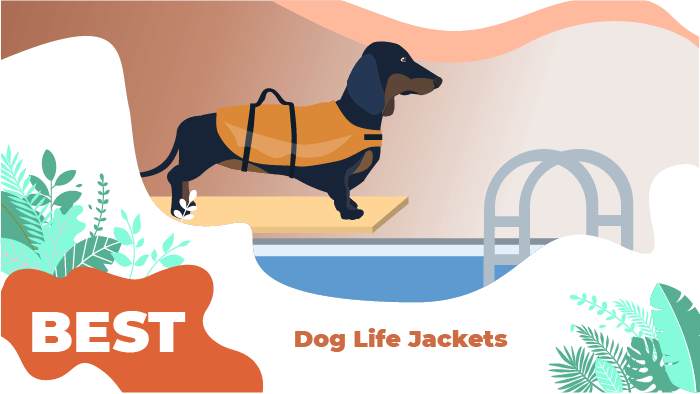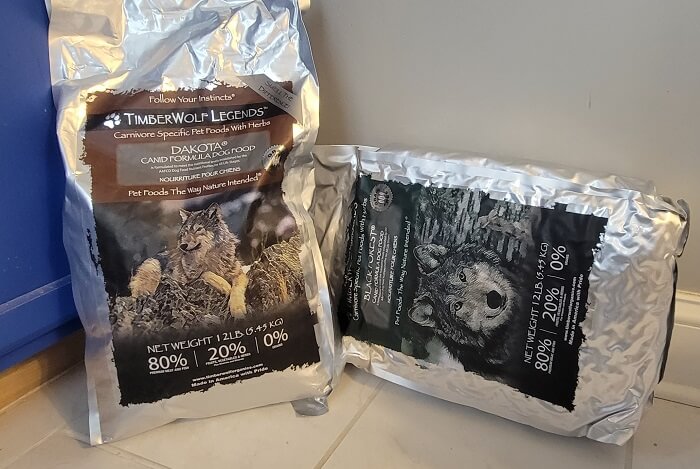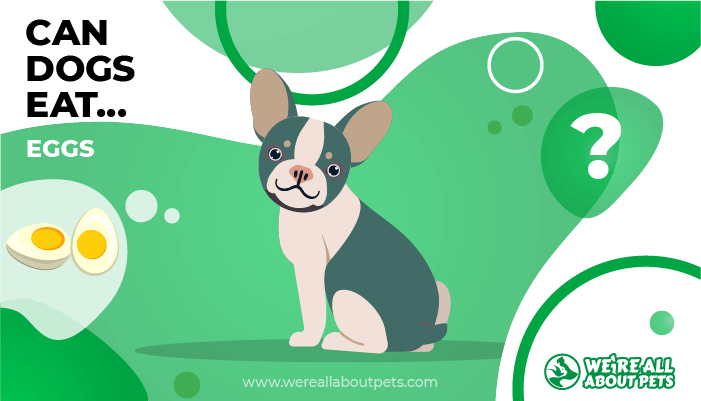Can Dogs Eat Cheerios?
This page contains affiliate links. We may earn money or products from the companies mentioned in this post through our independently chosen links, which earn us a commission. Learn More
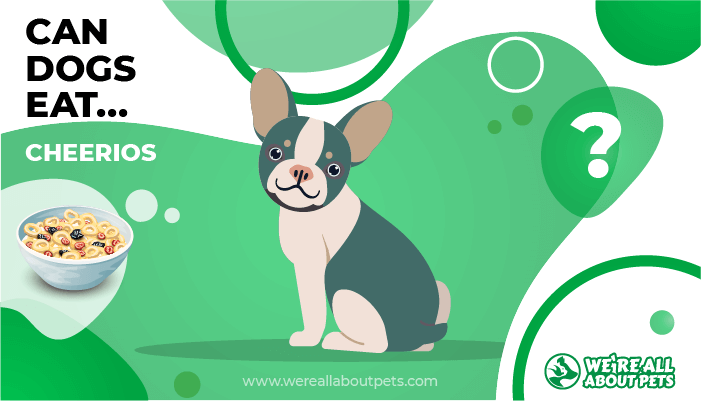
If you’re like most dog lovers today, your dog almost certainly likes to watch you eat, hoping you’ll let him have some of your food. Who hasn’t tried to eat a meal with their dog giving them the saddest stare?
Maybe there was some drooling involved. If you like breakfast cereals, maybe you have wondered can dogs eat Cheerios? The answer is a qualified yes, dogs can eat Cheerios, with a few caveats.
Find out what you need to know about dogs eating Cheerios in our short guide.
Cheerios Nutrition Stats
There are different varieties and flavors of Cheerios but they all have similar nutritional profiles.
One serving for a human is estimated to be one cup (28 grams). Daily values are indicated.
- 103 calories (5% daily value)
- 3.2 grams protein (6% daily value)
- 1.7 grams fat (3% daily value)
- 0.3 grams saturated fat (1% daily value)
- 20.9 grams carbohydrates (7% daily value)
- 2.8 grams dietary fiber (11% daily value)
- 15.8 grams starch
- Vitamin A 809 iu (16% daily value)
- Vitamin C 6.8 mg (11% daily value)
- Vitamin D 37.2 iu (9% daily value)
- Thiamin 0.5 mg (36% daily value)
- Riboflavin 0.5 mg (26% daily value)
- Niacin 5.3 mg (27% daily value)
- Vitamin B6 0.5 mg (25% daily value)
- Folate 273 mcg (68% daily value)
- Vitamin B12 1.7 mcg (29% daily value)
- Calcium 114 mg (11% daily value)
- Iron 8.9 mg (49% daily value)
- Magnesium 33.6 mg (8% daily value)
- Phosphorus 122 mg (12% daily value)
- Potassium 171 mg (5% daily value)
- Sodium 186 mg (8% daily value)
- Zinc 4.4 mg (30% daily value)
- Copper 0.1 mg (3% daily value)
- Manganese 0.9 mg (47% daily value)
- Selenium 8.0 mcg (11% daily value)
Cheerios Nutritional Facts At A Glance
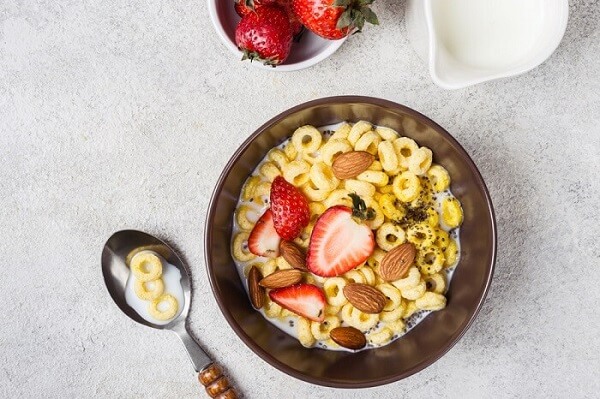
Cheerios contain zero cholesterol and they are low in saturated fat. They are packed with beneficial vitamins and minerals.
They are an excellent source of thiamin, riboflavin, niacin, vitamin B6, vitamin B12, iron, zinc, and manganese, as well as dietary fiber, vitamin A, vitamin C, calcium, phosphorus, and selenium. Cheerios are also low in calories. Overall, Cheerios have 74 percent carbohydrates, 14 percent fats, and 12 percent protein.
Since Cheerios do contain so many vitamins and minerals, along with having no cholesterol, they are advertised as being “heart healthy.” The cereals are primarily made from whole grain oats which are considered to be healthy.
Whole grains contain the entire grain so they can add more nutrients than refined grains. Fiber-rich grains are also believed to help lower cholesterol in humans and reduce the risk of heart disease.
However, many of the nutrients in Cheerios (and other cereals) are added and not naturally-occurring. This is common in many processed foods.
Although Cheerios contain lots of vitamins and minerals, they are low in protein. They do not provide the protein and calories needed to be a complete meal though they can help you start your day.
Adding milk and some other protein to your Cheerios, such as nuts, can help compensate for the protein. A couple of slices of bacon would also help round out your breakfast.
Cheerios are available in a wide variety of flavors. Some include other grains. Some have added sugars. Be sure to read the label so you know what you are buying, especially if you have health issues.
Popular Cheerio Varieties:
- Plain. Original and basic. The first ingredient is oats. They contain just 1 gram of added sugar and no extra flavorings.
- Honey Nut. One of the top-selling varieties, sweetened with sugar and honey, plus a hint of almond flavor.
- Chocolate. Made from corn and oats, as well as cocoa powder and sugar.
- Apple Cinnamon. Made primarily of whole grain oats and sugar, this type also includes apple purée and cinnamon.
- Frosted. Made with whole grain oats and cornmeal, sweetened with a vanilla-flavored sugar coating.
- Multigrain. This variety combines whole grain oats, corn, and brown rice. Sweetened with slightly less sugar than other varieties.
- Ancient Grains. Sugar-sweetened and made from whole grain oats, quinoa, and rice.
Cheerios also have seasonal flavors and some other flavors that come and go.
Can Dogs Eat Cheerios?
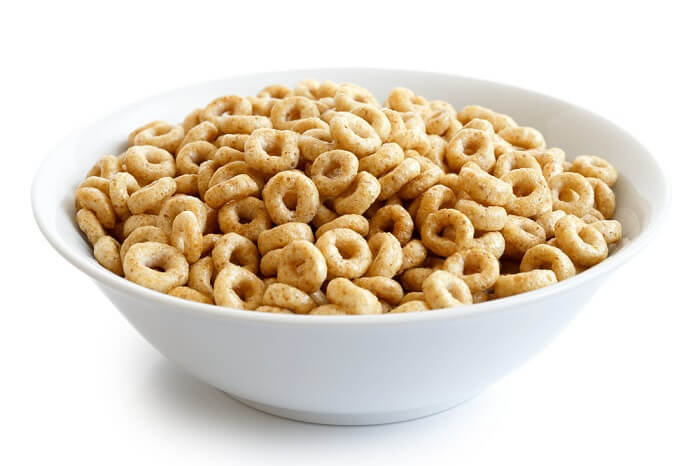
Can dogs eat Cheerios? The answer is a qualified yes. Dogs can eat Cheerios – at least some kinds of Cheerios. You can see from the list of popular varieties that some kinds of Cheerios have a lot of added sugar. We would suggest that you avoid giving your dog these flavors. Chocolate Cheerios would also be a no.
The oats and other grains in Cheerios are safe for most dogs, unless your dog has a food allergy or food sensitivity to one of the grains. Dogs have a sweet tooth and love sugar but you should not let them have too much sugar.
If you want to give your dog some Cheerios, plain and multi-grain Cheerios would probably be your best choices.
Are Cheerios Good for Dogs?
Cheerios can’t replace your dog’s regular dog food. They are a good cereal for humans but even for people, Cheerios are low in protein and don’t provide a complete meal.
Cheerios can be a good treat or snack for your dog. Some dog trainers like to use them as a small reward for good behavior. They are tasty and small. There is little risk of choking on a piece and they soften quickly once in the mouth. Most dogs like them.
The plain or multi-grain Cheerios would be a healthier snack for your dog than some sugar-loaded or high-calorie treats that are made for dogs.
How Many Cheerios Can Dogs Eat?
It’s best to limit how many Cheerios you let your dog have, especially if he’s never had them before. One-quarter (¼) cup is more than enough for most dogs. If you have a small or Toy dog, even less is recommended.
How Often Can Dogs Eat Cheerios?
If your dog can eat Cheerios without any digestive problems, you could let him have some 2-3 times per week.
If you are using Cheerios as training treats, remember to limit the amount you give. Switch treats and use other rewards so your dog doesn’t eat too many Cheerios in one week.
The Correct Diet Is Important
Dogs need to eat the correct diet for good health. All dogs need good quality protein and fat appropriate for their age, lifestyle, and health condition in order to thrive.
Most healthy dogs need the following things in their diet:
Good Sources of Protein
Meat, fish, poultry, and eggs are all good sources of animal protein. Animal protein is generally easier for dogs to digest. The more precisely the protein is identified on the label, the better.
Good Sources of Fat
Fat provides essential fatty acids (EFA) and helps distribute the fat soluble vitamins A, D, E, and K so they can be easily absorbed by your dog’s body.
Named Ingredients
Named ingredients are usually better than generic ingredients. The more specific, the better, so you know what your dog is eating.
Low to Moderate Carbohydrates
Most experts recommend diets that contain low to moderate amounts of carbohydrates. Carbohydrates are not “bad” for dogs but they should not be used as a substitute for protein. Many carbs do double duty as dietary fiber and probiotics.
Avoid Artificial Preservatives, Colors, and Sweeteners
Artificial preservatives and colors/dyes have been linked to some health problems in humans and animals. You should try to avoid these ingredients in dog foods.
AAFCO
AAFCO is the Association of American Feed Control Officials. AAFCO sets voluntary standards for pet food labeling. Look for foods that have these minimum standards.
Fresh Water
All dogs need easy access to fresh water unless they are ill or have some other reason to be temporarily kept away from water. For example, if you are house training your puppy, you can safely put away water overnight.
If your dog has health problems of any kind, please see a veterinarian for dietary advice. Ordinary diets may need to be adjusted.
What Are Other Healthy Alternatives to Cheerios In A Dog’s Diet?
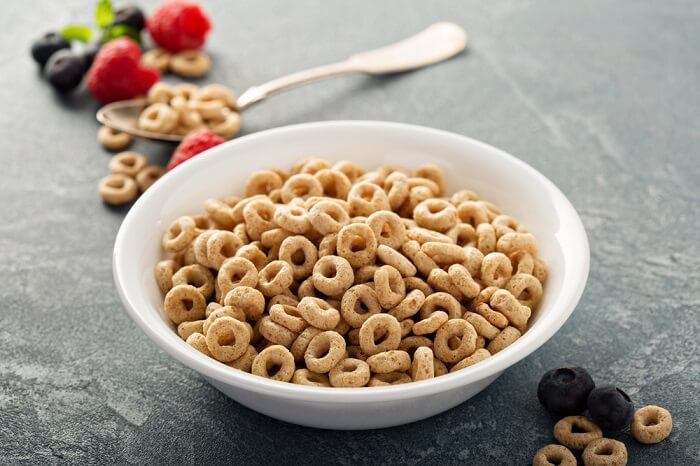
Cheerios can be an option as an occasional treat for your dog but there are many other healthy foods you can give your dog in small amounts. You should consider these human foods as treats. Check with your veterinarian if your dog has any health issues and you are concerned about giving any of these foods.
- Apples
- Asparagus
- Avocados
- Bananas
- Bell pepper
- Broccoli
- Brussels sprouts
- Carrots
- Cauliflower
- Cucumber
- Green beans
- Mangos
- Oranges
- Parsnip
- Pears
- Pineapple
- Pumpkin
- Strawberries
- Summer squash
- Sweet potato
- Tomatoes
- Watermelon
- Zucchini
How Do You Give Your Dog Cheerios?
You can give your dog Cheerios in a small bowl. Some people do give their dog their leftover Cheerios and milk from breakfast but if you do this, remember that some dogs are lactose-intolerant . (Not all dogs are lactose-intolerant.) They don’t always digest milk well. A very small amount of milk may not cause a problem but you should watch your dog to see if he has any issues such as vomiting, diarrhea, or gas. If so, don’t give your dog milk again. Stick to dry Cheerios.
You can also give your dog a few Cheerios in your hand, especially if you are using them as a training reward.
Conclusion
You can give your dog Cheerios to eat if you stick to the varieties that contain less sugar. Always check the box labels to make sure the ingredients don’t include anything that could be harmful to your dog such as chocolate.
Cheerios are high in vitamins and minerals but low in protein. They do not provide a complete meal and shouldn’t be given to dogs in large amounts.






